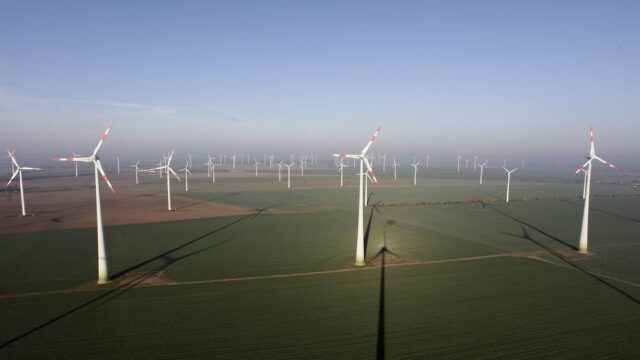The growing power of far-right factions in the EU Parliament may put the renewable energy sector under significant pressure. Major French green energy stocks have already fallen amid the election turmoil.
This Monday, the French stock markets were affected by the call for early electionsby Emmanuel Macron after the resounding defeat against the far-right National Rally party (RN) in the EU parliamentary elections. The benchmark CAC 40 fell 1.4% following the news, with major renewable energy stocks such as Engie SA, Voltalia SA and Neoen SA falling between 1% and 5%.
Far-right parties take advantage of their power with public discontent
With the extreme right parties gaining notable power in the EU elections, certain industries, such as renewable energy companies could be affected significantly in the midst of a possible policy change. Many of these far-right groups consider the green energy transition to be an excessive ambition of the European Union. They argue that climate regulations contribute to rising inflation and aggravate the cost of living.
Far-right groups maintain that current green policies impose important financial burdens to citizens and industries, attributing rising inflation and high business costs to meeting emissions targets. He discontent between companies and households has served as leverage for far-right parties, reinforcing their populist appeal and causing a notable increase in public support. The increased presence of far-right parties in the EU Parliament will likely slow down the implementation of the Green Pact by intervening in policy-making processes.
Risk of reduced investment in renewable energy
The renewable energy sector experienced a difficult year in 2023 due to the important inflation and the increase in interest rates. Unlike fossil fuel companies, which benefited from the war-induced rise in oil prices, companies focused on green energy faced difficulties.
These companies often rely on high capital expenditures, making them especially vulnerable to high interest rates and inflation. Many renewable energy companies depend on public subsidies through the renewable auctions. However, these auctions were harmed by low maximum prices, resulting in no projects being allocated in 2023.
Los extreme right parties They expressed concern that the ecological transition would reduce Europe’s competitiveness against large economies, particularly the United States and China. Its influence on policies could mean a lower investment in the renewable energy sectorwhich requires continued public aid and funding allocations.
According to a report from European Central Bank: “The European Commission has estimated that an additional investment of 620,000 million euros per year between 2023 and 2030″. This amount is equivalent to approximately 3.7% of the EU GDP in 2023.
On the other hand, a dilution of green regulations could benefit fossil fuel producers, such as TotalEnergies, by reduce the costs of the ecological transition and lower mandatory energy efficiency standards.
Renewable energy values rebound
The European price index for renewable energy has plummeted 24% for a year and it has dropped a 16% so far this year, while the Euro Stoxx 600 index is up 13% since last year and is up 9% this year.
However, some renewable energy values They have rebounded strongly since March. The shares of the Spanish public services company Iberdrola have soared 11%, those of the Finnish energy company have risen 17% and those of the Danish renewable energy company Orsted have increased 14% in the last three months.
The recent rebound in this sector has been reinforced by the rate cut expectations by central banks and the positive results of the first quarter. This resurgence indicates a renewed investor confidence and suggests that, despite recent challenges, the long-term prospects for renewable energy remain promising, especially with the possibility of favorable monetary policies and continued positive financial results.
The renewable energy sector is mainly governed by the Macroeconomic environment more than because of political influence. Although the growing power of the far right may put pressure on this sector due to the surprising election results, unlikely to alter long-term global trend. The resilience of renewable energy in the face of political changes underlines its importance as a sustainable solution for the future, and continued growth expected as environmental concerns and technological advances drive the transition to cleaner energy sources.








